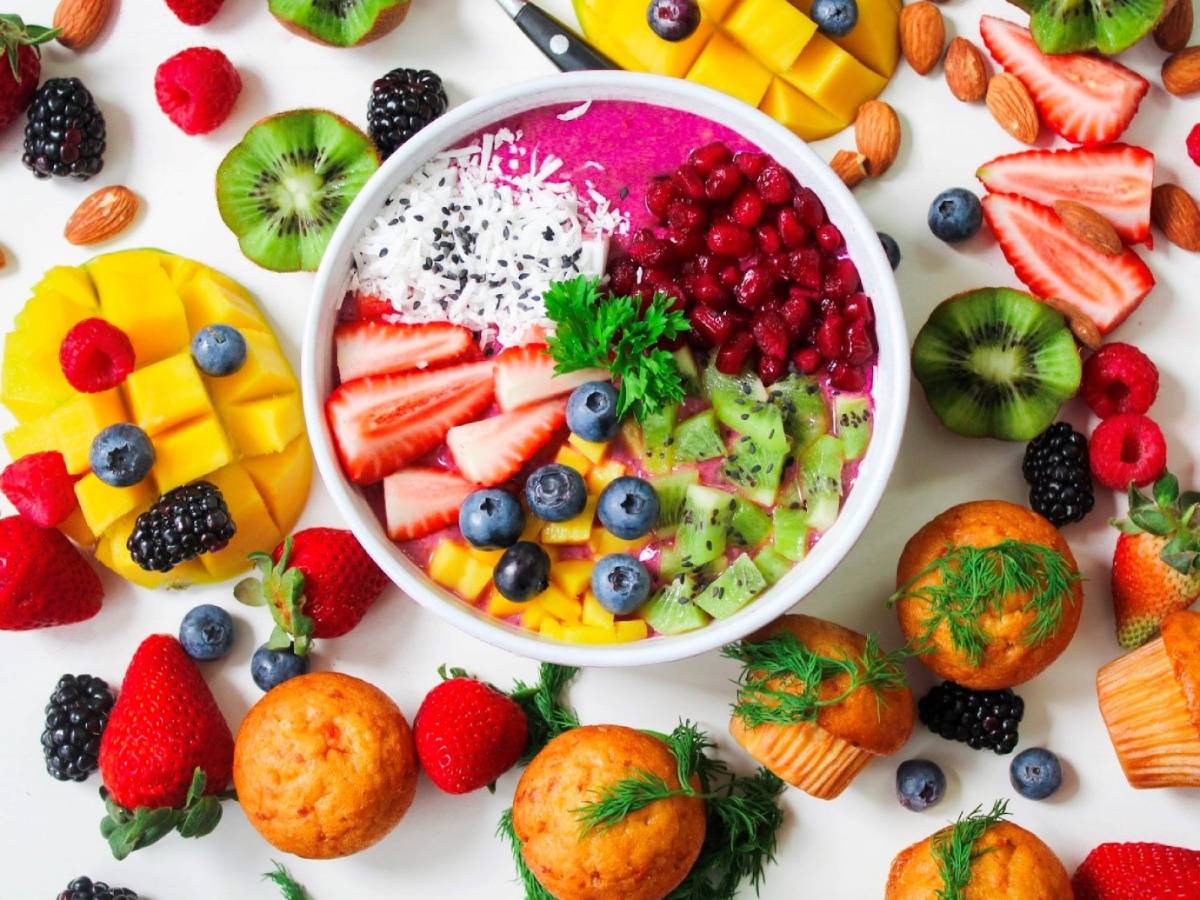Hormones are chemical messengers that affect your mental, physical, and emotional well-being. They, for example, play an important part in regulating your appetite, body weight, and moods.
Normally, your body creates the exact quantity of each hormone required for various processes in order to keep you healthy. When there is either too much or too little of a hormone balance in your system, hormonal imbalances arise. You’re probably aware that hormones play an important role in the body’s functioning. As a result, even minor hormonal abnormalities might lead to a deterioration in general health.
Sedentary lifestyles and eating practices, on the other hand, may have an impact on your hormonal environment. Furthermore, certain hormone levels diminish with age, with some persons experiencing a more significant decline than others.
Hormones may not always be at the forefront of our minds when deciding what to consume to fuel our bodies. However, our hormones play a critical role in our bodies. A nutritious diet and other healthy lifestyle practices, on the other hand, may help enhance your hormonal health and enable you to feel and operate at your best. If you want nutritiously delicious meals that are also good for your hormones, check out these amazing recipe ebooks!
The impact of food on hormones
What we consume influences hormone synthesis and signaling pathways. The human body contains over 200 distinct hormones. Certain foods can provide us with the nutrients we require to facilitate hormone production. Food offers the nutrients we require to maintain healthy body functions, such as hormone production, metabolism, and detoxification. As a result, if we do not consume enough nutritious foods, our hormone balance may deteriorate.
There are dietary guidelines that can assist balance the overall hormonal picture dramatically. This reduces mood fluctuations as well as symptoms of depression, anxiety, exhaustion, and irritability.
Foods to Balance Hormones
1. Leafy greens
Greens high in antioxidants, such as spinach, kale, collard greens, and Swiss chard, can help avoid inflammation. Leafy greens are also thought to be hormone-balancing foods since they can help alleviate stress by lowering cortisol levels and regulating estrogen.
Furthermore, greens are high in fiber. A high-fiber diet can help lower estrogen levels, especially in persons with a history or risk of hormone-sensitive breast cancer.
2. Cruciferous vegetables
Cruciferous vegetables, particularly broccoli and broccoli sprouts, are powerhouses for assisting our livers in metabolizing estrogen in an efficient and healthy manner. And, Cruciferous vegetables include cauliflower, Brussels sprouts, kale, cabbage, and bok choy. One method to protect yourself from developing estrogen-dominant tumors is to consume them on a regular basis.
Cruciferous vegetables, in addition to being high in antioxidants that protect your body from free radicals, have favorable effects on estrogen metabolism, notably preventing estrogen dominance.
These veggies also aid in the removal of excess estrogen from the body. It’s also worth noting that broccoli’s high calcium content can help with PMS treatment by lowering cramps and bloating and moderating mood swings.
3. Eggs
There are some illusions regarding eggs and hormonal imbalance, but eggs are one of the finest meals for hormone balance since they have a favourable effect on insulin and ghrelin hormones in the body. Insulin, in particular, regulates blood sugar levels, whereas ghrelin regulates appetite.
Eggs are high in choline, a vitamin that aids in the production of the neurotransmitter acetylcholine, which is necessary for nervous system function, brain health, memory, and development. Eggs are strong in omega 3 fatty acids, which are anti-inflammatory lipids that help the brain. A healthy mind and nervous system allows a person to cope with stress better. People should strive to buy organic, pasture-raised eggs rather than conventional eggs.
After eating eggs for breakfast, your insulin and ghrelin levels are lower (compared to a carb-based meal). Eggs, like other proteins, are one of the hormone-friendly foods that keep you fuller for longer, allowing you to consume fewer calories. This is especially beneficial if you are having difficulty reducing weight.
4. Chicken Breast
Chicken breast has a high protein content and a low-fat content. According to research, high-protein meals enhance the release of hormones like leptin, which create feelings of satiety.
Chicken may also have anabolic hormones, such as insulin and estrogen, that assist muscle growth after exercises, making it one of the crucial foods for female hormone balance.
5. Fatty fish
Fatty fish like wild-caught salmon, herring, mackerel, lake trout, and sardines help to balance your appetite hormones, allowing you to feel satisfied for longer.
Furthermore, fatty fish are thought to be one of the foods that help ladies balance their hormones. They are high in vitamin D, which aids in the improvement of female testosterone levels. Controlling these hormone levels can help with issues such as weight gain, weariness, and depression.
Finally, the omega-3 fatty acids in fish promote general hormonal communication, making it one of the finest meals to take for hormonal balance. The endocrine system communicates with the brain through hormones, which improves our mood and cognition skills.
6. Green Tea
The majority of people are aware that green tea has several health benefits. Although research on this topic is limited, current evidence suggests that green tea helps reduce estrogen or leads to better hormonal balance. Green tea consumption is linked to lower levels of estrone and estradiol. Estrone and estradiol are both estrogen hormones.
Additionally, it increases metabolism in the body. Green tea contains theanine, a molecule that inhibits the release of cortisol, a stress hormone. It also contains antioxidants, which reduce inflammation and the risk of disease.
7. Avocados
Avocados are high in beta-sitosterol, which can lower blood cholesterol and help balance cortisol. The avocados contain beta-sitosterol, which significantly lowers cortisol levels. They naturally reduce cholesterol levels as well.
Avocado plant sterols also affect estrogen and progesterone, the 2 hormones in charge of regulating ovulation and menstrual cycles. The combo of fat and fiber in avocados enhances hormones that promote satiety, such as peptide YY (PYY), cholecystokinin (CCK), and glucagon-like peptide 1 (GLP-1).
8. Nuts

Nuts are high in poly and monounsaturated fats, which help with blood vessel health and hormone synthesis. They have a good impact on your endocrine system, lowering cholesterol and insulin levels while regulating blood sugar levels.
Brazil nuts are high in selenium, a vitamin that is essential for hormone balance and overall thyroid health. Following that, walnuts are anti-inflammatory and high in omega-3 fatty acids, both of which improve brain health. Both walnuts and almonds are high in protein and antioxidants. They also boost your metabolism and produce naturally beautiful skin. They’re delicious as a snack with some fruit or in a salad.
9. Foods With Prebiotics and Probiotics
Not only does the stomach manufacture hormones, but it also detoxifies hormones like estrogen. As a result, it is critical to feed your gut prebiotic and probiotic foods, which are designed to control the gut flora.
Probiotics are live bacteria that can be consumed to assist the digestive system. Fermented foods such as yoghurt, miso, kefir, sauerkraut, kombucha, and kimchi contain them. Probiotics eat prebiotics to promote growth and activity. Garlic, asparagus, banana, leek, tomato, and oats are among them.
10. Fruits and vegetables that are organic
Non-organic produce may include herbicides like glyphosate, which serve as hormone disruptors and reduce fertility. Buy organic whenever feasible, and look for non-GMO foods, as these are less likely to be contaminated with glyphosate.
Along with eating organic, it is also crucial to avoid purchasing food that has been packed in plastic. Bisphenols in hard plastics such as drinking straws and water bottles, and phthalates in soft and malleable plastics are endocrine disruptors, which indicates that they interfere with the endocrine system’s normal functioning. If feasible, store your foods in glass, paper, or other natural materials, and avoid microwaveable meals because plastic contains hazardous chemicals that seep into the food during the microwaving process.
Conclusion
It is important to be mindful of what we consume and put in our bodies. Being aware of how food affects your body, more importantly the things that your gut loves, will surely impact our gut health. If you are interested in gut healthy and gut friendly meals, you may want to check out my Meal plans and Recipe ebooks, or better yet – Consult with me and take control of your hormones!
Hormones influence growth and development, metabolism, digestion, fertility, stress, mood, energy, hunger, weight, and other bodily functions. A diet rich in fruits, vegetables, whole grains, healthy fats, and protein helps to keep hormones in check. Obesity, diabetes, infertility, and cancer can all be caused by not getting enough overall calories, good fats, or fibre. Lack of sleep, stress, alcohol, and processed meals can also disrupt hormone balance, either directly or indirectly, by altering the gut microbiota, which regulates hormone levels.
Author Bio

Website:https://jesswilson.com/
Jess Wilson is a Functional Nutritionist and a trained Microbiome/Gut Health and Hormone Practitioner, on a mission to help people worldwide restore their health. She specializes in helping busy professionals, mums, and individuals get their joy and energy back and loves using her holistic methods as a health and wellness coach.
Also Read: Why Are Postpartum Pants So Popular?




